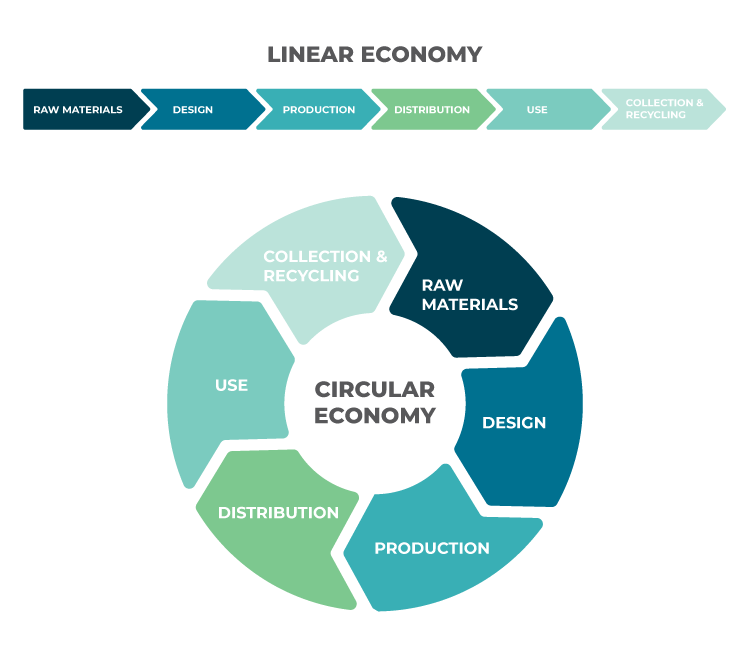Sustainability and the Circular Economy

They are definitely working at the right end of the product stream. We need more beneficial handling of waste, and lots of it. We have this mistaken concept of throwing things away. There is no ‘away.’
Have you heard about Amsterdam’s continuing efforts toward a circular economy?
I was listening to an interesting broadcast about efforts there to shift the local international mindset from growth to thriving sustainability, and to establish a completely circular economy in that city by 2050 that uses as few as possible new resources, and which prohibits planned obsolescence, and it’s expected to involve a massive recycling program that will be labor-intensive enough to provide full and continuous employment for much of the population. There are related efforts to shift the national mindset elsewhere as well.
When you have time, you might check out this TED talk by Kate Raworth. She’s an English economist working for the University of Oxford and the University of Cambridge, best known for her work on the ‘doughnut economics’, which she understands as an economic model that balances between essential human needs and planetary boundaries.
—
First let me comment for those unfamiliar with the concept of a circular economy: there is no waste in nature. Every output from one process becomes feedstock for the next. Dead tissue is food for bacteria, dead bacteria …..etc. A circular economy simply means that society fashions itself according to this guiding principle.
Yes, I’ve seen that Ted Talk, and yes, it’s fabulous. I’ve written a few blog posts lauding The Netherlands for what it’s doing to create a circular economy. Extremely progressive.
